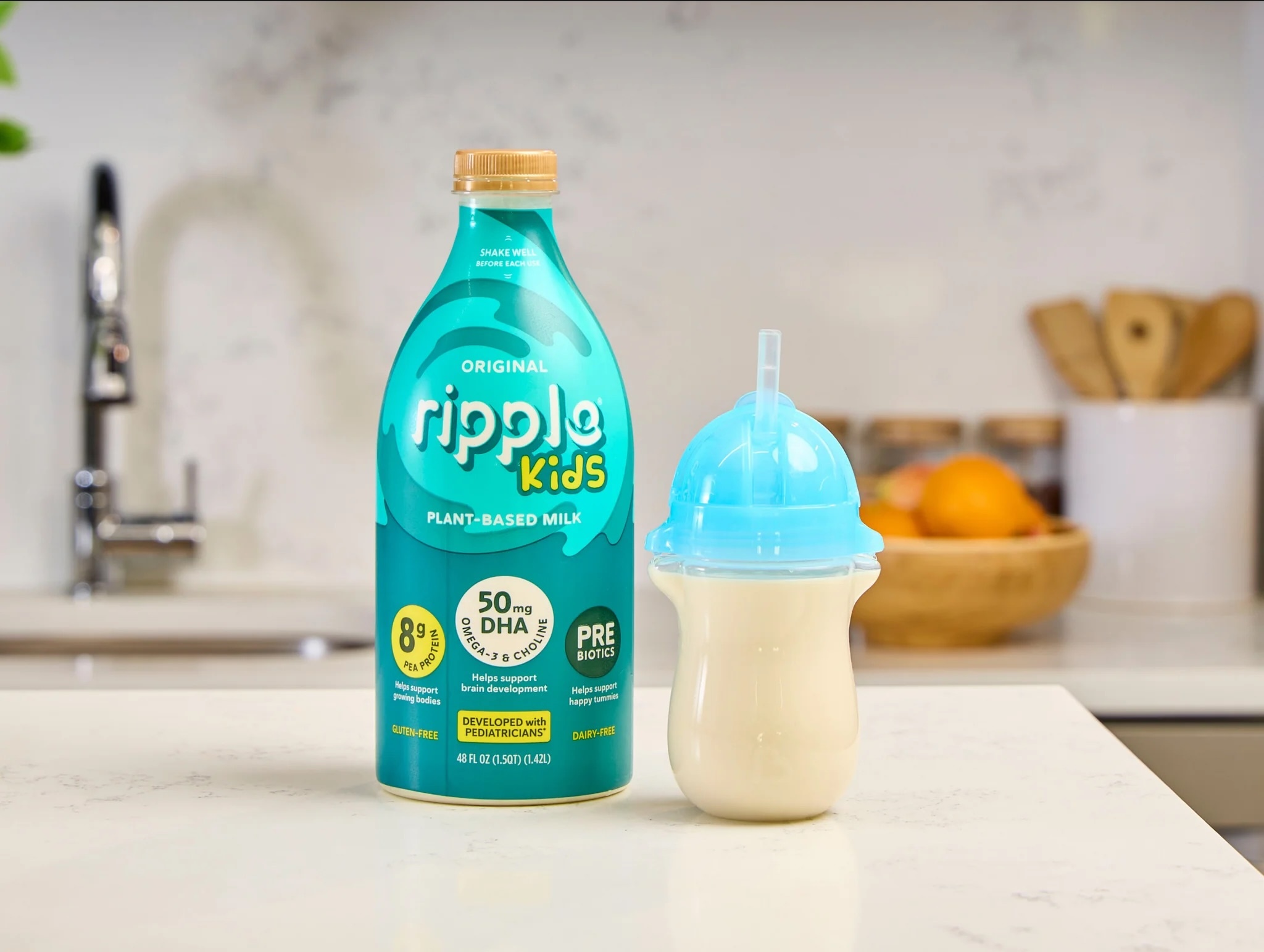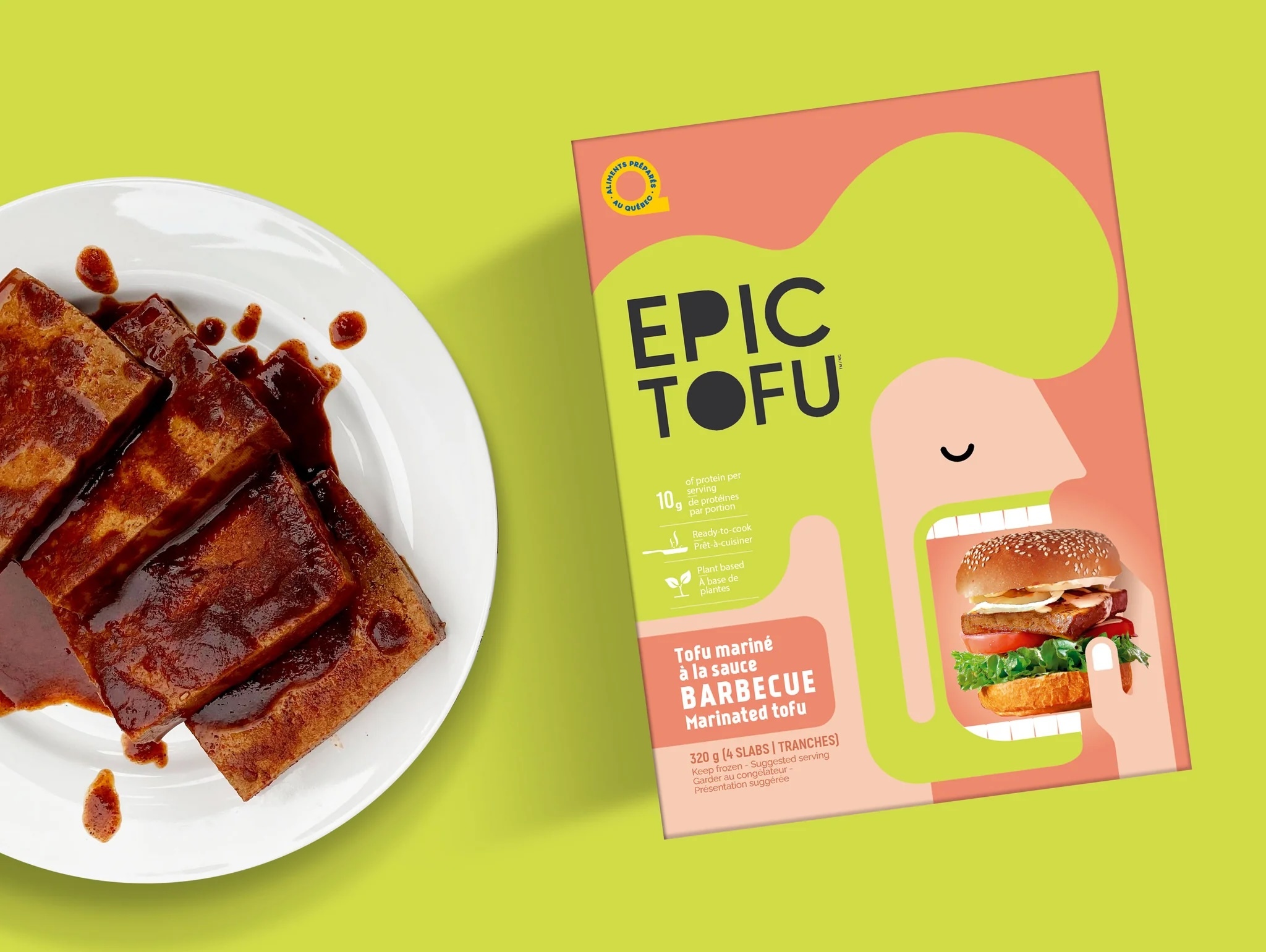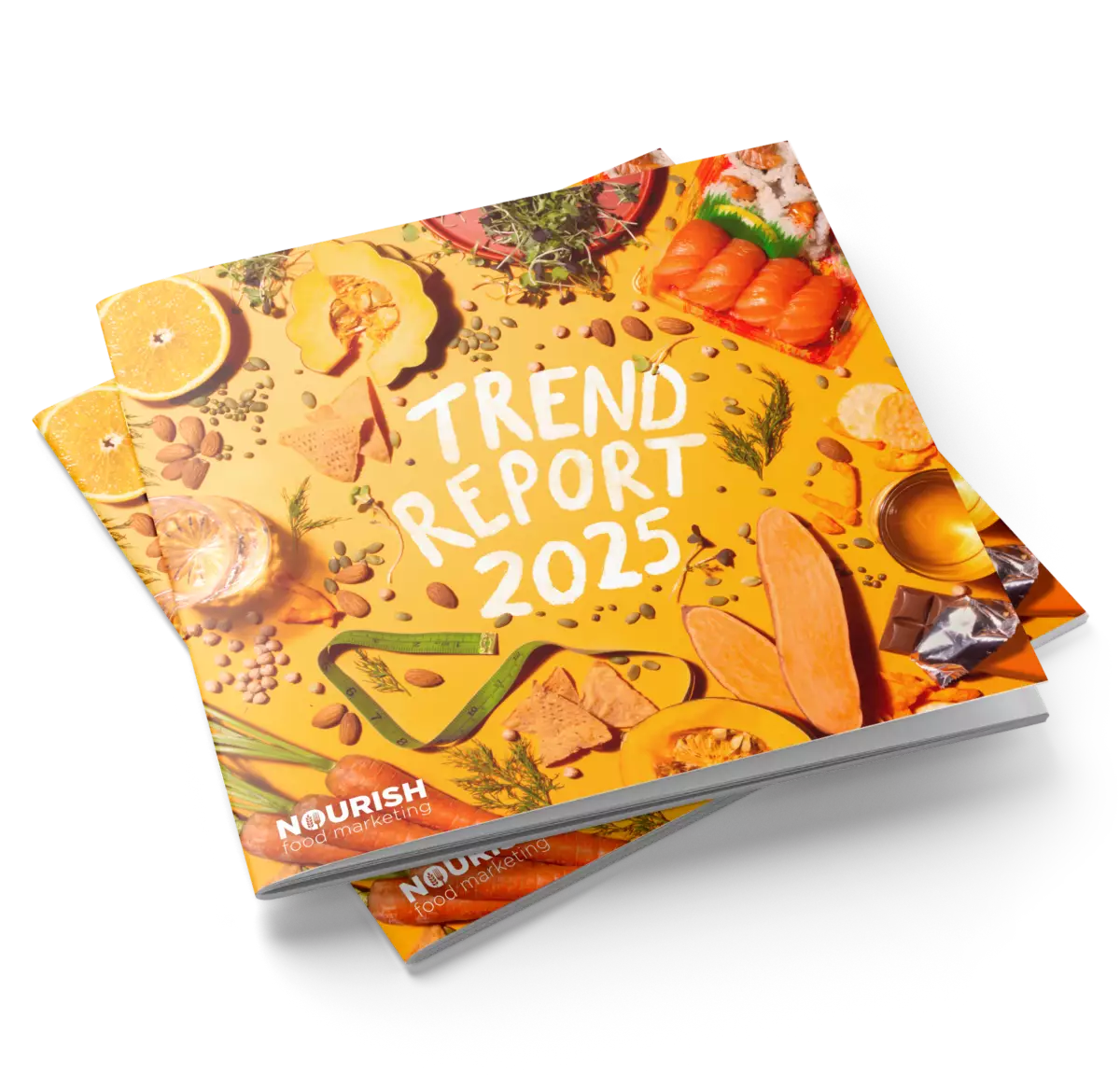How do you know when a trend is a trend and not merely a fad? When you see it playing out in the wild, evolving and adapting, and spreading its ripples throughout a sector or even the whole industry.
Every year, at about the mid-way point, we check in with the trends from our annual Nourish Trend Report. It’s always exciting to see how they impact the Food & Beverage industry, and it also helps guide our thinking for the future. In the second half of our update, we’re pouring over developments in the non-alc sector, touching base with our youngest consumer demographic, weighing in on the latest on the Ozempic Effect, and seeing where there’s growth in plant-based foods. It’s been a dynamic year so far, so let’s get started.
By the way, if you missed Part One of our update, you can find it here on our website. And, you can download the 2024 Nourish Trend Report at any time for an in-depth look at all of our trends.
No More For Me, Thanks: Alcohol Moderation Mainstreams Without Compromise on Taste
“‘The times they are a-changin'”: Alcohol has even gone out of style on the music charts, with a significant decline in chart-topping songs that reference being drunk. Abstaining from or reducing alcohol consumption is becoming more normalized, with fewer raised eyebrows attached to choosing non-alcoholic options in social drinking settings. In short, the stigma of being a nondrinker is disappearing. (Cheers to that!)
Similar to what we've seen with reduced meat consumption, we’re also witnessing the emergence of the "flexitarian drinker." In Whole Foods US stores, Athletic Brewing, a non-alc beer, now sells more than any other beer, including the ones with alcohol. Consumers aren’t buying Athletic instead of beer; they’re buying it in addition to other beers, creating a whole new occasion. And A&W, a Canadian QSR, is testing serving a non-alcoholic beer in its Ontario restaurants, making an additional sale permissible while ordering at the drive-thru. One for the road, indeed!

Even leading hard seltzer White Claw has entered the non-alcoholic category with a zero-proof beverage. And they’ve upped the appeal to younger generations by adding electrolytes for enhanced hydration for the occasion.
New Kids On the Block: Say Hello to Generation Alpha and Their Unique Perspectives
Alphas are providing a rare growth area within plant-based dairy. Califia Farms has expanded its offerings by introducing Complete Kids, a plant-based milk explicitly designed for children, with 8 grams of protein, 50 mg of DHA omega-3, 55 mg of choline, and prebiotics, among other nutrients. Other brands, such as Oatly, have come out with overnight oat smoothies, and Ripple Foods introduced its Ripple Kids line with pea protein.

We mentioned that this generation may have to grow up too soon due to climate and social issues. They've received a new moniker from researchers, "upagers,” as they are considered more socially aware and engaged than other generations at the same life stage. Brands beware—your marketing needs to take authenticity and transparency to a whole new level!
The “Ozempic Effect”
We did a deep dive into this trend in our March newsletter, and you can read it here. Since then, Nestle has announced its new line of frozen foods, "Vital Pursuit." The new brand's initial lineup of 12 items will include frozen bowls with whole grains or protein-packed pasta, sandwich melts, and pizzas. The products will include one or more essential nutrients, like protein, calcium or iron. Tasty, nutrient-dense, portion-controlled products are exactly what users of semaglutide drugs require to support their health with scaled-back caloric intake.
Putting the “Plant” Back in “Plant-Based”: Rethinking the Approach to Meat Alternatives for Increased Adoption
We talked about consolidation coming to the plant-based segment, and we’ve even seen the once fast-growing plant-based milk sector struggling recently with Danone discontinuing two options under its Silk and So Delicious brands.
We wrote about the idea of combining plant-based proteins with animal-based ingredients as a way of bridging the consumer taste gap in our 2022 Nourish Trend Report. One of the OGs of plant-based meat alternatives, Quorn, is now selling its mycoprotein (a fermented fungus) to be used in meat products. Could these blended products be a solution for consumers wanting to add more plant protein into their diet without sacrificing taste and texture?

And despite headlines about a slowdown, the plant-based market is still experiencing growth, particularly in less publicized ingredients. While faux meat may have cooled, foundational plant-based ingredients like tempeh, tofu, and legumes continue to see a steady increase in sales. In Canada, the winner of the SIAL Pitch Competition was Epic Tofu, showing that there are still many areas to explore within traditional plant-based proteins without going full UPF. It’s sold in the freezer section, and, if you didn’t know, tofu's texture changes when frozen, giving it a more "meaty" mouthfeel and allowing it to soak up more of the marinade.
If you haven’t read the 2024 Nourish Trend Report, download your free copy now.
An Open Invitation to Chat
I like to say that at Nourish, we know a lot about a little. As food specialists, we bring a wealth of expertise and industry connections to the table. We are proud to be 100% Canadian and female-owned, and we work across North America and globally to deliver exceptional results. Our unique expertise and dedication make us the ideal partner for your marketing needs. Let’s work together to achieve your goals and drive your business forward.
Can I buy you a great in-person or virtual coffee? I’d love to discuss how we can help you achieve your marketing objectives.
